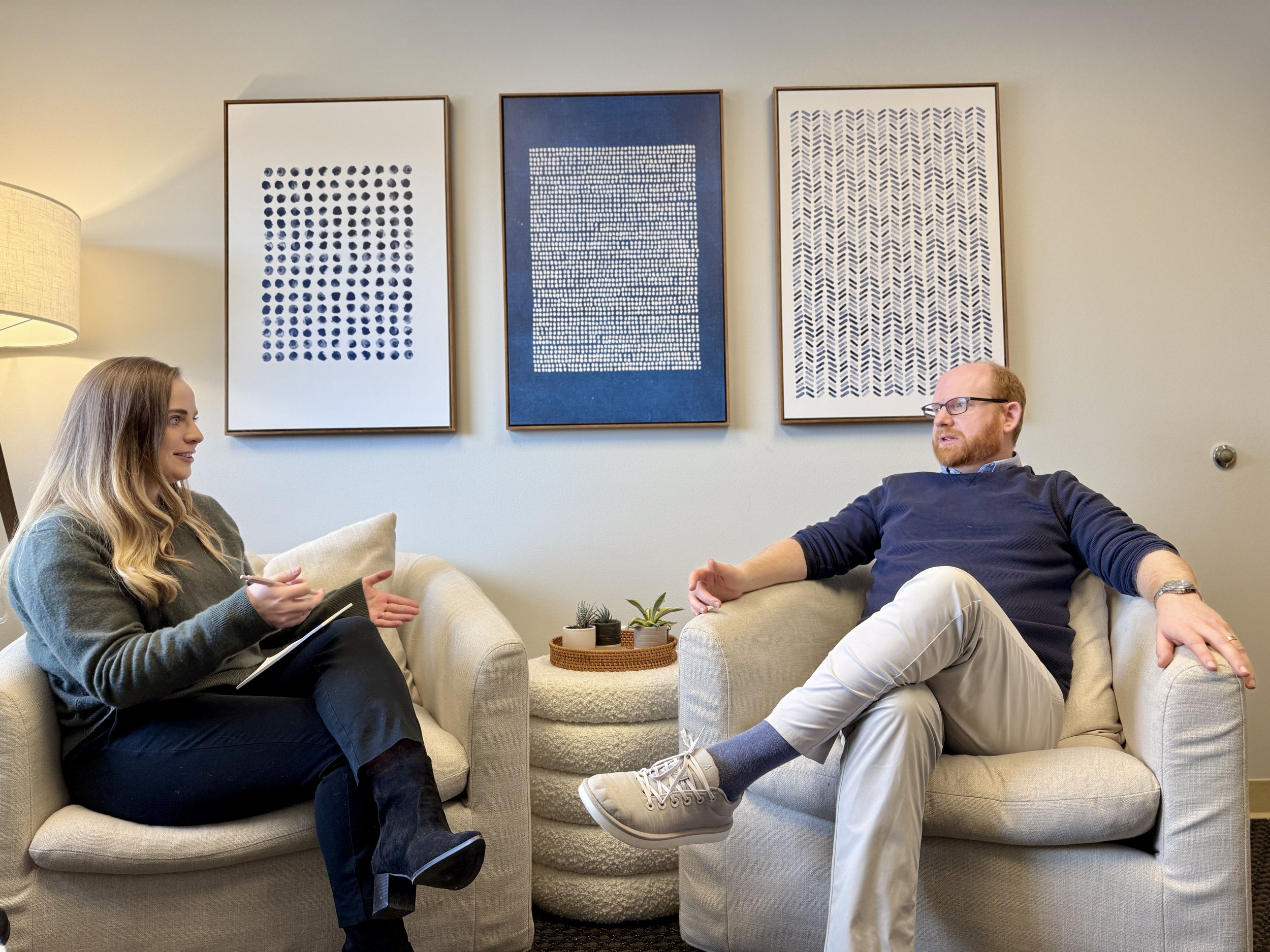
What Makes
Us Different?
We believe that we can’t work with kids in isolation. Partnering with parents and other caring adults who play a key role in our clients’ lives, like educators, school counselors, and medication providers, is central to our model of care.
Who Do We Work With?
We support children, adolescents, and young adults in developing skills and strategies to regulate their emotions, enhance executive functioning, and manage common mental health challenges, like anxiety and depression. Our aim is to help them overcome barriers to social-emotional health and wellbeing, empowering them to thrive in all aspects of their lives.
Our Clients May Look Like —
-

An elementary schooler who struggles with self regulation, exhibiting challenging behaviors at school or home that indicate complex underlying needs.
-

A middle schooler whose complex learning profile has resulted in unmet needs at school, bringing up frequent complaints of “hating school” and difficulty engaging in the classroom.
-

A high schooler who is struggling to navigate the ups and downs of adolescence, overwhelmed by difficult social dynamics and academic expectations.
-

A young adult who is working through the challenges of transitioning from adolescence to adulthood and seeking additional support.
Our Model of Care
At Newman Counseling Group, we are committed to a holistic approach to therapy, grounded in three core values that guide everything we do: client connection, parent partnership, and school collaboration.
Client Connection
We prioritize building strong, trusting relationships with our clients, ensuring that each child feels safe, understood, and empowered. We tailor our therapeutic interventions to meet their unique needs, fostering growth and resilience. We also believe that laughter and fun is critical to connection and a core part of relationship-building.
Parent Partnership
Caring parents are part of the therapeutic process and should be supported in their own right. We believe in working closely with parents, recognizing them as key partners in their child's progress. Through open communication, support, and guidance, we equip families with the tools they need to reinforce positive change at home.
School Collaboration
We believe that, because schools are often where kids are most challenged and spend the most time, they need to be effectively partnered with as part of the therapeutic process. We understand the importance of a supportive educational environment in a child's development. By collaborating with school counselors, advisors, and teachers, we support them in ensuring success both in and out of the classroom.
Together, these values create a comprehensive approach to care, promoting lasting progress and long-term social-emotional wellbeing through individualized therapeutic support. We never charge for collateral work, such as phone calls with parents, school counselors, med providers, etc., as we see this work as vital to our clients’ success.
Who We Are
Phil Newman, LICSW
CLINICIAN & FOUNDER
Having spent the last decade working in schools that specialize in learning differences, I saw first hand the complex intersection of social-emotional needs, learning challenges, and the adolescent experience. Developing sustained relationships, a positive sense of self, healthy respect for boundaries, and the interpersonal skills to manage challenging emotions flooded my office and inbox. I LOVED IT! At the root of these struggles, I found hard working kids and young adults who couldn’t get out of their own way and caring parents who were stuck in their own right. Developing meaningful relationships with my students was equal parts rewarding and energizing and formed the foundation of my practice.
As a result of my experience, I found myself “breaking up” kids from ineffective treatment as much as I was referring kids to talented providers. It was a natural progression for me to take everything I learned working in schools and create a functional model of therapeutic care for children and families in need. I have been surprised by how often high levels of communication, partnership, and relationship-building to coordinate care across all the environments central to kids’ lives is lacking in therapeutic treatment. The model I use is centered around these values, action-oriented, and has proved to be highly effective.
I utilize evidence-based clinical modalities, such as cognitive-behavioral, motivational interviewing, and exposure-based treatment. I build upon these modalities’ effectiveness by building strong partnerships with the key stakeholders in kids’ lives - parents, schools, and providers - through high levels of quality communication. I connect with the people that deeply affect kids’ lives in order to support therapeutic growth across all environments: in my office, at home, and in school. This relationship-building is the foundation of my model of care.
Caleigh Stevenson, LCSW
CLINICIAN
With rising anxiety and depression rates and constant demands from technology—like group chats, social media, and information overload—added to the normative developmental challenges of growing up, young people are facing unique stressors that can lead to feelings of isolation and self-doubt. I help my clients understand and work through their emotions, overcome obstacles, and develop a sturdy sense of social-emotional wellbeing. With an affirming, strengths-focused approach, I focus on getting to know my clients as individuals while supporting their development of self-awareness and self-advocacy skills. I personalize therapy to meet the specific needs and goals of each individual, from managing challenging emotions like anxiety to building self-confidence and strengthening interpersonal relationships.
Through trust, empathy, humor, and a straightforward approach, I help young people explore their strengths and develop practical tools to manage anxiety, regulate emotions, and navigate social and academic pressures in a way that feels accessible and relatable. Together, we build a strong therapeutic relationship that allows my clients to openly explore their thoughts and feelings without judgment.
If the therapeutic relationship is the heart of effective therapy, skill-building is the backbone—it equips children and adolescents with the tools they need to tackle life’s challenges and grow into resilient, emotionally healthy adults. I collaborate with clients and their families to set goals that guide this skill-building. Each session is approached with flexibility so that I can meet clients where they are, while continually fostering the coping skills needed to manage stress, regulate emotions, and solve problems. I draw from evidence-based approaches like CBT and DBT to teach concrete skills that my clients can apply with growing independence in their daily lives. Through this, I build independence, empowering my clients to handle whatever comes their way.



